Yousuf Sediq: The Afghan Interpreter and Special Forces Operator Who Fought Against the Taliban
Over the course of the War in Afghanistan, between 50,000 and 76,000 Afghan interpreters worked alongside the American and coalition forces. They all risked their lives in the pursuit of peace for their country, and many were forced to remain when the government fell back to the Taliban.
One interpreter, alias Yousuf Sediq, managed to secure a visa to the United States and wrote a book about his experiences, titled 5,000 Days of War: The Firsthand Account of an Afghan Special Forces Operator. This is our conversation with him.
The terrorist attacks of 9/11 led to a US invasion
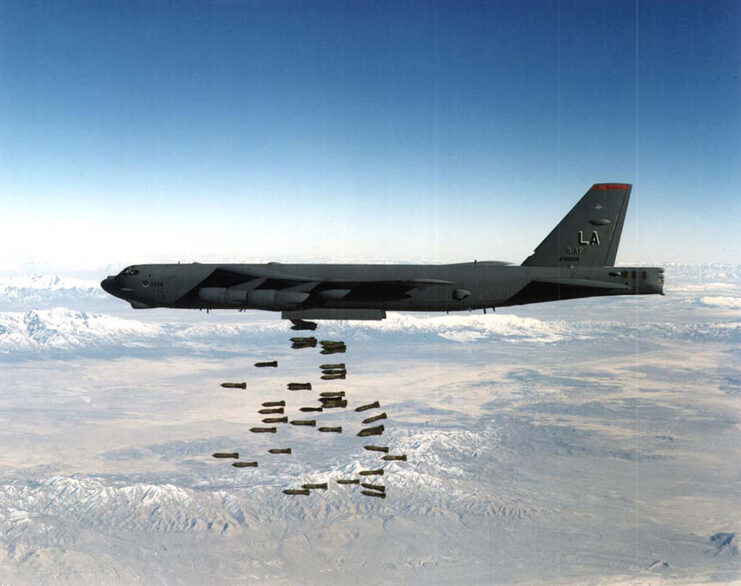
The US initiated the War in Afghanistan – and the wider Global War on Terror – following the 9/11 attacks, which were planned by Al-Qaeda founder Osama Bin Laden. One week after the assaults on American soil, US President George W. Bush signed into law a joint resolution, which authorized the use of force against those responsible.
With the aid of British forces, the Americans launched an offensive against the Taliban that October, plunging the region into a nearly 20-year war. The opening salvo saw the first of the coalition forces conduct airstrikes on rebel hideouts, followed by the first ground assault 12 days later.
Yousuf Sediq recalls life before the Taliban took over Afghanistan. “Life was pretty good,” he shares. “People were very happy. [The] government was strong. When you have a strong government, then it supports its people.” While things were going well, there were also a ton of weapons left behind by the US following the Soviet-Afghan War. This led to intense guerrilla fighting, which allowed the Taliban to gain control.
Following the opening engagements of the War in Afghanistan, Sediq recalls, “[The] first thing I saw in the street was people dancing, and you could see the smile on people’s faces. So that’s how bad it was [before].” He adds, “Everybody was happy. Freedom came into the country.”
What were the Americans’ intentions?
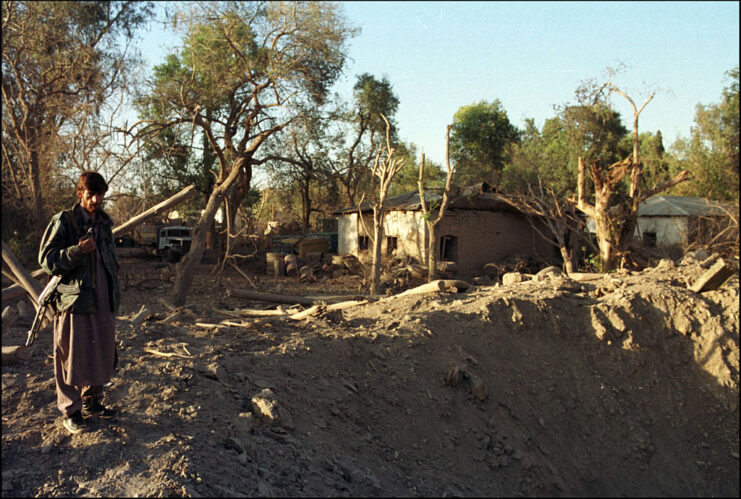
While the majority of Afghan citizens were happy to see someone fighting back against the Taliban with enough strength that the rebels went into hiding, there were a number of questions regarding the coalition’s intentions – in particular, those of the US. As Yousuf Sediq explains, most of what everyone knew about America and its population was what they’d seen in Hollywood movies – far from a factual portrayal, depending on the film.
On top of that, the majority of Afghans were living in poverty and had been subjected to years of oppression. Depending on a person’s age and gender, this meant they hadn’t even been afforded a proper education, as was the case with females under Taliban rule. How were they to trust this invading force without any real knowledge of what these outsiders planned to do?
“We didn’t know much about [the] United States,” Sediq shares. “We didn’t know what their plans [were], what they wanted to do. It’s like, ‘Our strong country comes in and helps you.’ You don’t think about the consequences. We were living in poverty. We [had] no jobs, no education.”
A lack of trust between the interpreters and the coalition forces
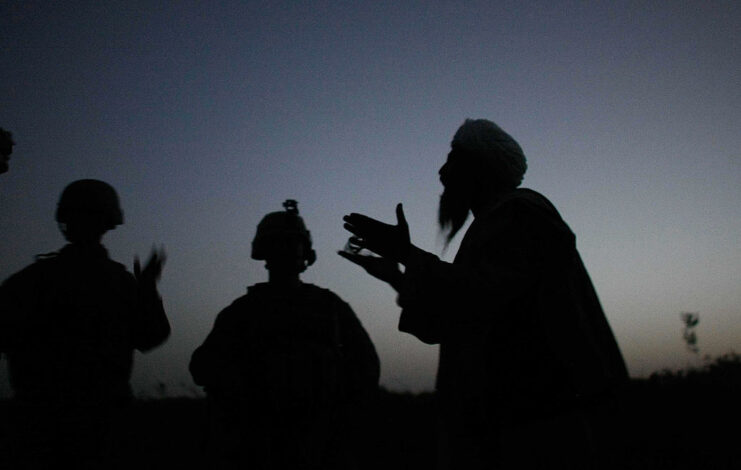
Upon the start of the War in Afghanistan, Yousuf Sediq knew he needed to be involved in bringing peace to his country. This led him to enlist as an interpreter with the coalition forces. He was first assigned to a group of Canadians. While nice enough, he found there was a distrust between the troops and the Afghans – and not just civilians. This also extended to him and his fellow interpreters.
“They never trusted us,” he explains. “That bothered me because [we] were helping them, whatever we had to [do] to help [get our] country back. But there was always this trust issue between the coalition and us, and it didn’t matter what you did; at the end of the day, they didn’t trust you 100 percent [as a] person.”
He adds, “We were reading them. It was very obvious in their faces [during] their conversations that they didn’t trust us.” This distrust meant that interpreters were made to take polygraph tests every six months to prove their allegiance to the coalition.
Sediq brings up a specific example from this time. While working alongside a regiment from Quebec, he and another interpreter were speaking in their native language. A Canadian soldier came in and became upset that the pair weren’t speaking English, as he couldn’t tell what they were discussing. Sediq responded to the man’s behavior by requesting that he and his comrades speak English to him and his fellow interpreters, as opposed to French.
That way, everyone was on the same page as to what was being said.
Interpreters were blacklisted if they quit
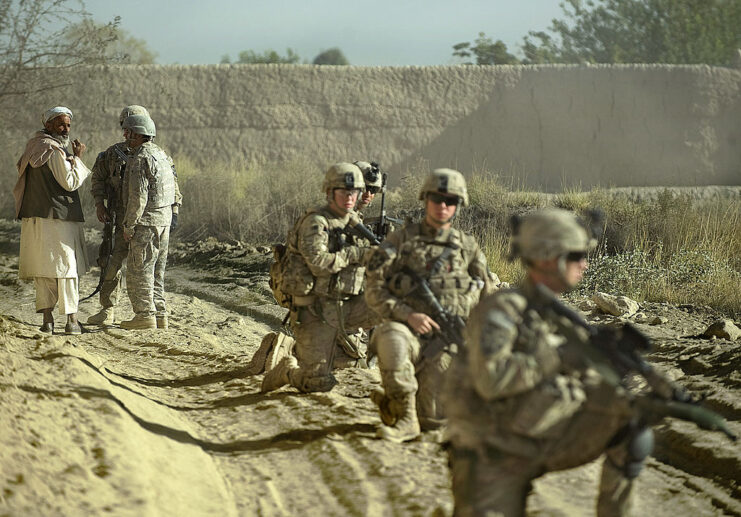
One aspect of the War in Afghanistan that’s rarely discussed is the fact that a number of Afghan interpreters weren’t able to secure visas to the US or another of the coalition countries. Not only was this viewed by many as a slap in the face to those who risked their lives to work against the Taliban, it also placed the interpreters and their families in grave danger.
One of the reasons some interpreters couldn’t get visas was because they were blacklisted, despite having received positive reviews from their superiors. According to Yousuf Sediq, he was actually threatened with this while working with an American unit.
As hinted at in the previous section, Sediq wasn’t a fan of the culture within the coalition units. Eventually, he’d had enough and decided to quit. When he tried to hand in his resignation, however, “they warned me they were going to put [me on a] blacklist” because it wasn’t the end of the unit’s tour.
According to Sediq, being blacklisted would mean he’d never “get the chance” to apply for a visa, nor would he “be able to work with any coalition organization,” regardless of whether it was “a civilian organization or a military organization.”
Despite these threats, the interpreter still resigned from his post. Instead of going into hiding, as many in his position would, he joined the Afghan Special Forces.
Yousuf Sediq joins the Afghan Special Forces
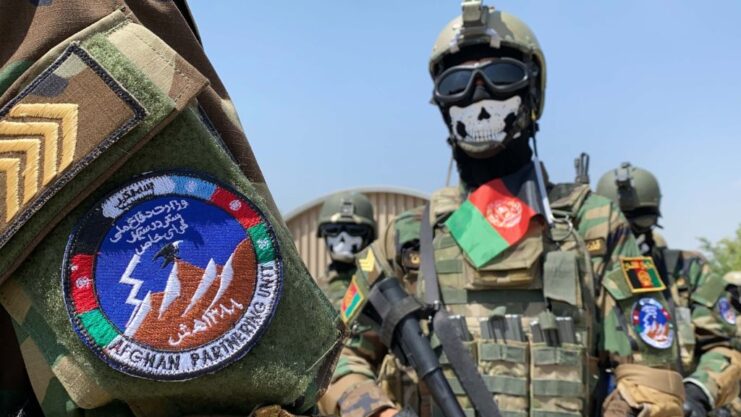
Yousuf Sediq found he received a lot more respect from the coalition after joining the Afghan Special Forces. While in this role, he worked alongside Canadian, American and British units, all of whom had to show him respect. If they didn’t, he “could easily tell them to get out of my office. I’m not going to cooperate with you no more.”
Essentially, he was a member of one of the best Special Forces teams in Afghanistan – Task Force-241. He knew he didn’t need the coalition’s help – they needed his.
“Everything was great,” he explains. “If they were saying something wrong, I could stand on my own with my soldiers and tell them I don’t need your help. I don’t need your support. I did know they had to work with us, and some soldiers tried to abuse that power because they’re from a first-world country. I had the power and told them, ‘Hey, I have my team. I have my soldiers. If you don’t want to work with me, it’s all fine. Go do your mission. I have my own targets. I have my own missions.”
While in this role, Sediq’s goal wasn’t to represent the Americans or any of the other militaries that were fighting in the country. It was to stand by his people. “We are Afghans,” he says. “We were here for Afghans.”
What was the civilian response to the Special Forces operators?
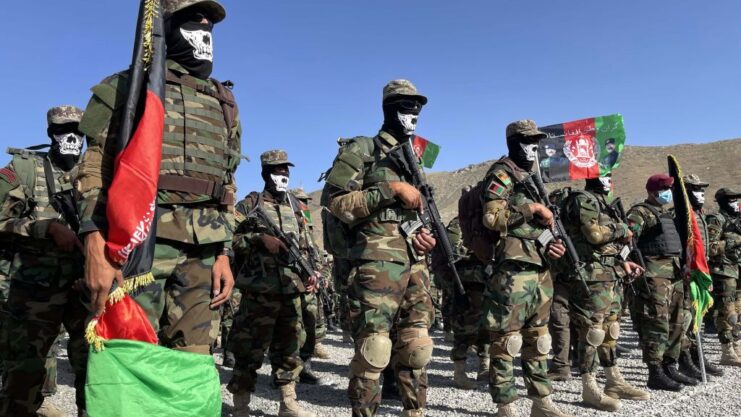
While under Taliban rule, it was common for police officers and members of local militias to have had little training and not be well equipped. However, civilians knew that members of the Afghan Special Forces were armed with lethal weapons and did all they could to keep out of the way when operators were conducting missions.
Yousuf Sediq’s unit, in particular, operated at night, which meant the majority of villagers simply remained in their homes until it was safe. According to him, reaction to their presence was mixed, depending on the region. Areas in non-Taliban strongholds were generally receptive, while those overrun by rebel fighters were indoctrinated to believe the Afghan Special Forces were there to destroy personal property and wreak havoc.
Essentially, they had “a very, very bad name among the Taliban,” says Sediq.
US withdrawal from Afghanistan
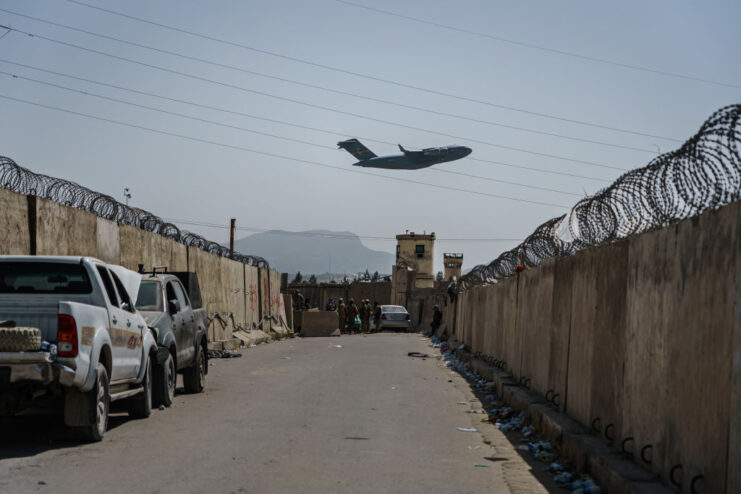
In late 2018, discussions ramped up between the US and the Taliban about a possible withdrawal of troops from Afghanistan. However, these talks ceased in 2019. It wasn’t until February 2020 that an agreement was signed regarding the removal of American soldiers – so long as the Taliban swore to not engage in terrorist activities.
Throughout this time, talks between the Taliban and the Afghan government continued.
By early 2021, US President Joe Biden had announced that a complete withdrawal would occur by September. However, as the primary leave date of August 2021 drew near, the Taliban gained control of Kabul – the country’s capital – and the government.
Along with a severe lack of organization on the part of the Americans, the collapse of the Afghan government led to a rather messy withdrawal for American troops. Yousuf Sediq was present for part of it. “We were the first people to help at Kabul Airport during the evacuation,” he recalls. “We were the first people who came in and cleared the whole airport, like every single part of the airport – the buildings, the rooms, we cleared everything. Then the runway was cleared.”
Scared for their safety, thousands of Afghan citizens flooded Kabul Airport, hoping to hitch a ride to the US. Many went so far as to try to keep hold of the exterior of American aircraft, only to fall to their deaths.
The US completed its military withdrawal by August 30, 2021. Biden received heavy criticism for how it played out, with many pointing to the lack of organization on the ground, which likely allowed the Taliban to regain control of Afghanistan as quickly as they did.
Yousuf Sediq never planned to leave Afghanistan
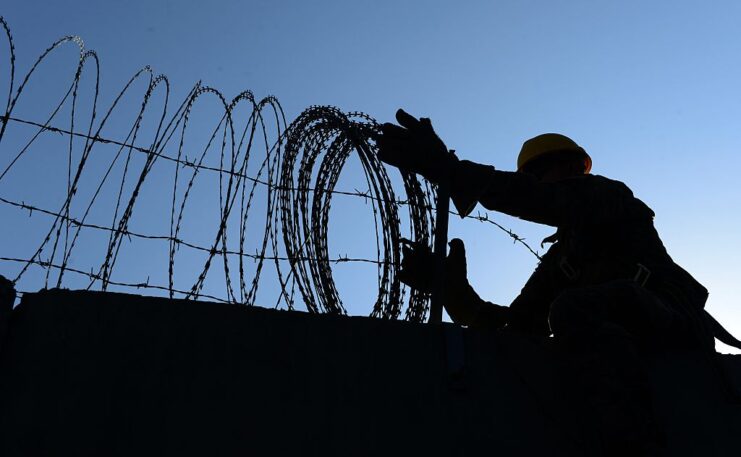
Prior to the Taliban takeover, Yousuf Sediq never planned to leave Afghanistan. In fact, he believed great things were to come as a result of the peace he and so many had spent years fighting for. He only left because he knew he and his family would be at risk due to his involvement with the coalition forces.
The experience of leaving his home country was emotional.
“When I was leaving my country, I cried,” he shares. “To be honest, I cried because I didn’t want to leave my country. [It was because] of that security threat that I could not stay in the country. […] I have kids. I have my wife. I love them all. I can’t take the risk of them being without a father.”
Turning real-life experiences into words

Yousuf Sediq will be the first to tell you he never planned to write a book about his experiences during the War in Afghanistan. As he puts it, “What happens in Vegas, stays in Vegas.” There were many reasons for this. Aside from wanting to keep his family safe, he was also suffering from post-traumatic stress disorder (PTSD).
As time went on, Sediq learned how to handle his mental health issues, explaining, “For me, when PTSD hits my head, I just go for a nature walk with my friends and it relieves my head.”
It was his friend and editor Bryan Bay who suggested we write it all down. After hearing what Sediq went through, Bay was shocked, telling his friend, “We did not know anything about this stuff, these things that you’re talking about.” He was aware the majority of the American population was kept in the dark about much of what happened in Afghanistan.
Eventually, Bay managed to convince Sediq to write 5,000 Days of War. The former interpreter has since come to terms with what might happen with the release of the book. “I’m like, ‘OK, well, whatever happens, it was written by destiny.”
Why did Yousuf Sediq write 5,000 Days of War?
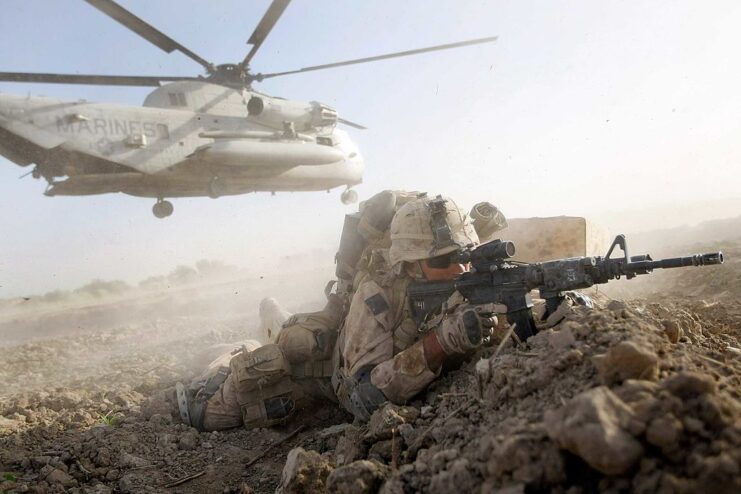
After he was convinced to write 5,000 Days of War, Yousuf Sediq realized he had a number of motivations for getting the book to print. One was his aim to hold politicians and military leaders accountable for what happened during the war and the withdrawal. He compared the latter to that seen at the end of Vietnam War.
“I would hope that people take from the book that you don’t trust your politicians all the time; always hold your leaders accountable,” he shares. “I had to show not [just] the government, but civilians what happened. A lot of young people, unfortunately, were killed during their missions and nobody [was] held responsible.
“I had to write all these things [to] hold somebody responsible for the mess that they created,” he continues. “It could have been handled very well. It could have been handled [much] better than it was.”
A second reason Sediq had for writing the book was to share the sacrifices made by those fighting the Taliban, even if some readers might not like what he has to say. “I do know maybe some people [won’t] like it, especially my American friends,” he concedes.
However, he’s willing to risk that to share the stories of those who can no longer speak. “They were hoping for the country to be better and they lost their lives,” he says. “Read it and understand from the book that those sacrifices weren’t for no reason. They wanted to bring some changes. They brought some changes. Unfortunately, [things] went back.”
More from us: Lt. Gen. Larry Jordan on His Military Career and the Service of African-Americans in WWI
5,000 Days of War: The Firsthand Account of an Afghan Special Forces Operator is currently available for pre-order via Ballast Books, with its release date slated for late spring, 2023.
The post Yousuf Sediq: The Afghan Interpreter and Special Forces Operator Who Fought Against the Taliban appeared first on warhistoryonline.
Post a Comment
0 Comments